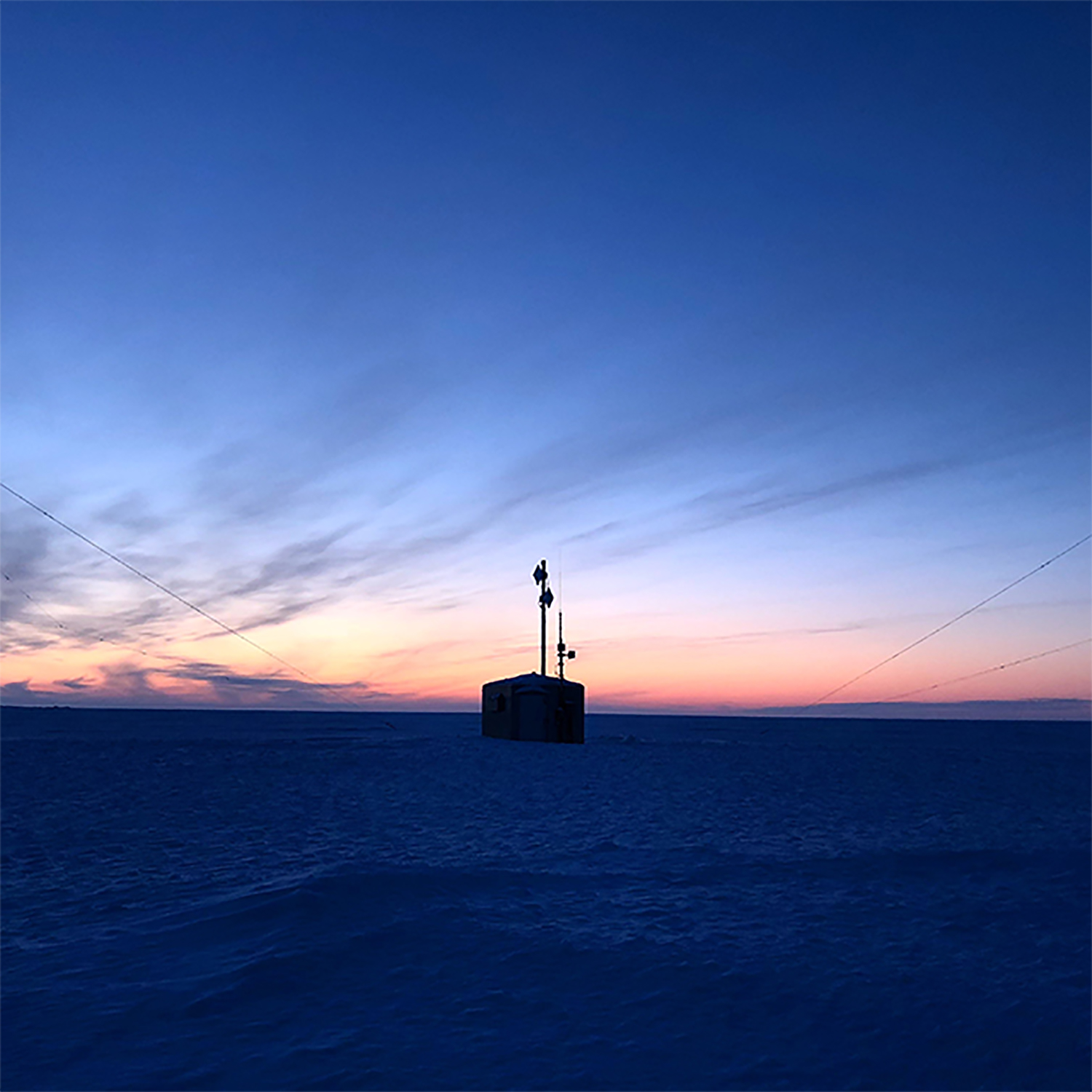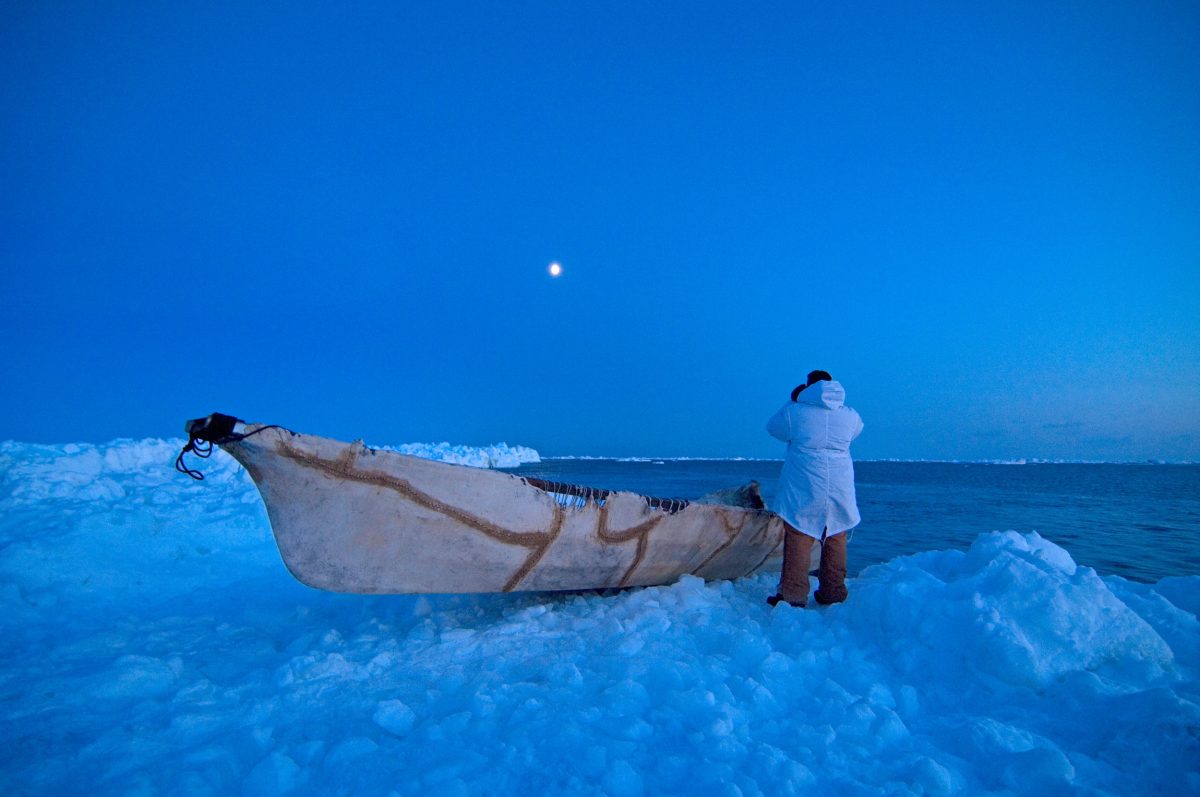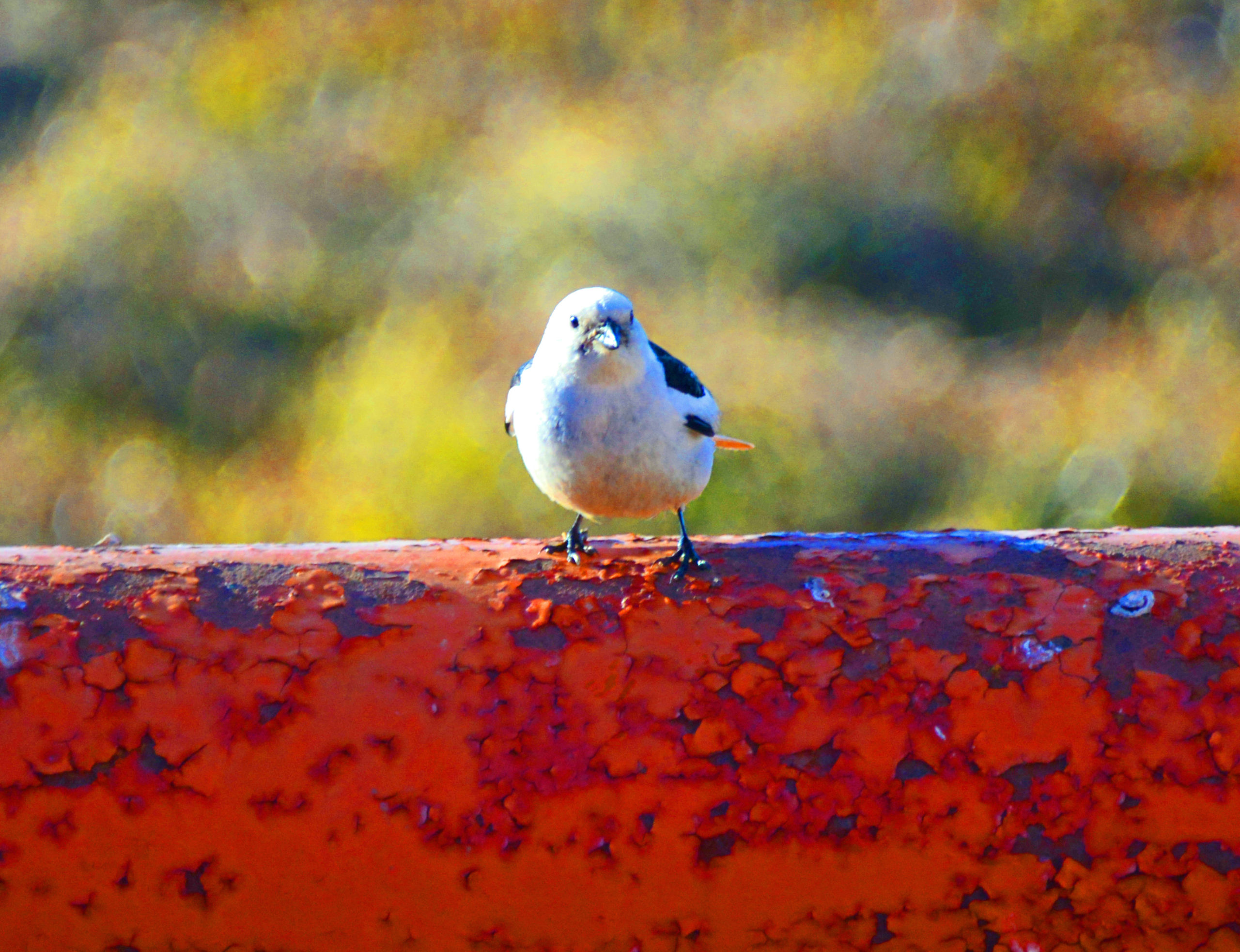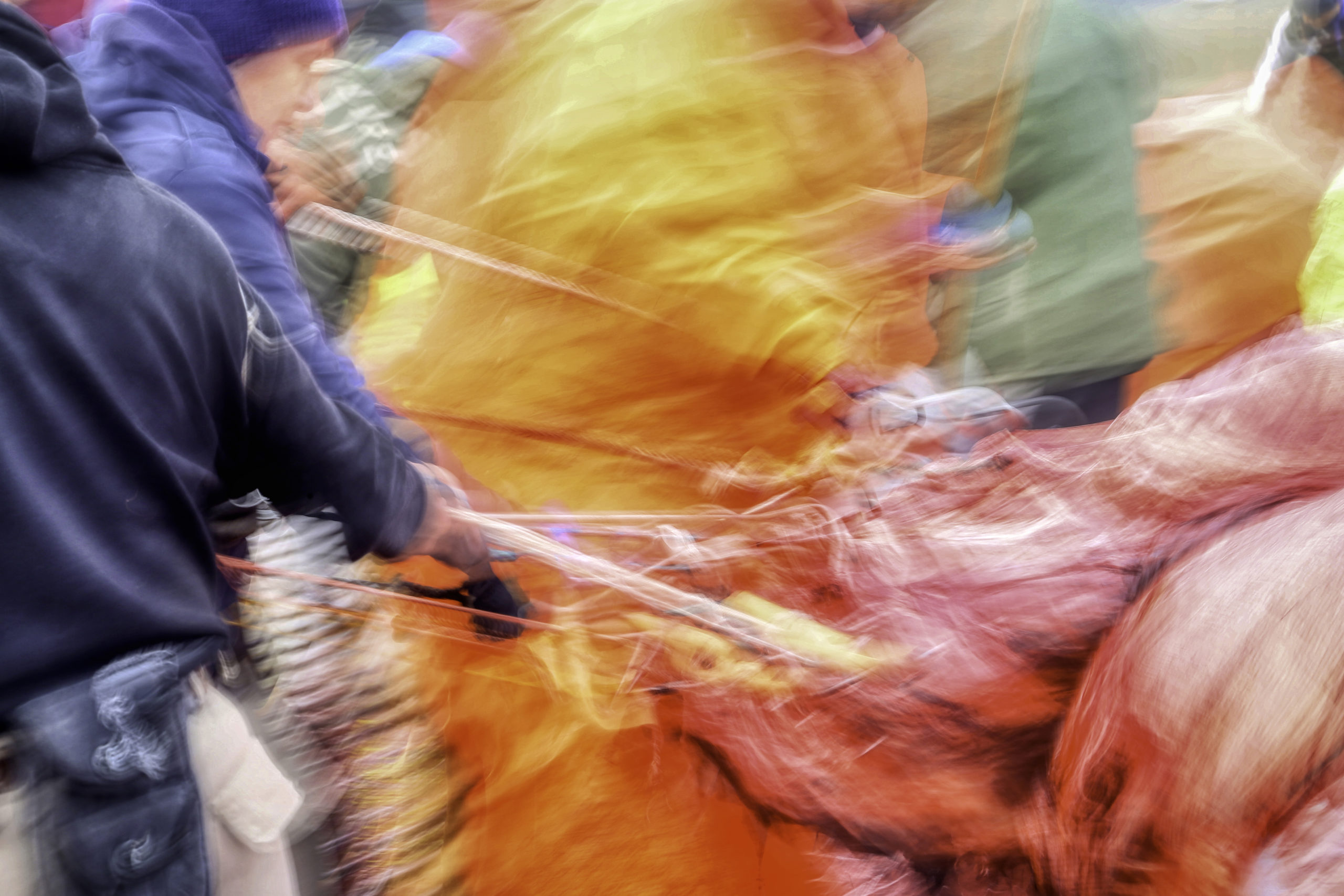The Old Man died, finally, on one of those rarified mornings during early spring when the air is so clear that the vast horizon of the Great Eastern Sea seems as if it has literally no end. A gentle breeze intertwined itself with dawn’s rosy fingers and rolled in to shore, carrying a salty flavor that clearly proclaimed the presence and intricacy of all that is ocean. Barely a ripple was impressed upon the glassy, reflective surface of the sea’s bosom.
Against the vivid blue clarity of the sky, the sun was turgid with the morning’s exquisite perfection. Bright rays of golden light streamed down in such profusion that the world seemed spun from them; a gossamer haze of life’s fondest memories. People were happy in ways they couldn’t explain as they began to wake and stir; even the harshest of life’s realities seemed unable to find ingress into any sentient awareness along the coast. Day was springing in the most transcending of ways.
Along the waterfront, elderly men garbed in the colorful woolen sweaters of the hill country sat together in small groups between the pilings of the quay with their legs dangling over deeply, unexpectedly crystalline water. Ostensibly, they had congregated in order to wreak their expert havoc on unsuspecting fish beneath the surface of the bay. And it was, mind you, a perfect morning to fish, if one could disregard the fact that the harbor still held too much of winter’s deep chill for the great schools of fish which frequented these waters during the summer months to have made their way so far north.
All of Ton D’aagen knew that fishing from the docks in early spring was an unlikely proposition, but the old men, ignoring this, cast their lines nonetheless, paying them scant attention. The bobbers floated listlessly on the surface of the water, untended and uncared about. Shared raillery was the true object of the old men’s pursuit; a communion as vital to them as breathing, eating, or sleeping. It was thought among the people of Ton D’aagen to be a sad thing in a man’s life, something indicative of his imminent passage into eternity, when he was no longer able to go down to the docks with his fellows on a spring morning in order to pursue fish that weren’t there.
Each of the garrulous old fishermen smoked an exceptionally long churchwarden pipe fashioned out of unstained briarwood and twisted by the hands of its maker into a series of wild, gnarled convolutions. Fragrant tufts and brumes of smoke from their sticky, sweet-smelling pipe weed wafted without direction overhead as they laughed and talked like the old friends they were.
“’Tis a fine marnin’, ‘tis shorely,” said one, stretching languorously in the pervasive sunlight and practically shivering with pleasure in the warmth of his green woolen mantle.
“Aye,” said another, garbed in red, “’tis the finest marnin’ in many a long year.” He sucked a thick mouthful of rich white smoke from the ember in his pipe, savoring its sweetness as it trickled slowly from his nostrils. “And ay’m after thinkin’ that it’s a damn fine thang no fish hay’ve happen’t along to spoil it!”
A third man, wearing a yellow sweater and crowned by a cap of like color that was unable to completely conceal his unruly tangle of silvery grey hair, chortled as he smoked. “Ah,” he said, “Ay’ve nivver seen sooch a thang before, of cawrse, but shorely t’finger of Gawd ‘tis visible upon t’face of t’earth this marnin’.”
The other two men scrutinized the one in yellow subtly, but intently nonetheless, at his invocation of so old and hallowed a phrase. Silence fell over the little threesome as they considered the possibility that today, of all mornings, such an invocation might indeed be warranted.
Behind them, Ton D’aagen’s narrow cobbled streets and high stone walls sparkled in the pellucid air, fairly glowing under the bright, golden sun. On one side was an endless expanse of sea, coruscating almost painfully in the light. A profusion of hills rolled away in the other direction, west from the coast, stretching out until they became nothing but an indistinct carpet of stiff, knee-high grass waving in the wind.
The hills had been named, long ago, for the perpetual murmur that rose from them as the mistrals of spring, summer, and autumn coursed through their covering of whitish-green grass. The Whispering Hills, they were called, and nothing broke their continuity save the occasional village or farm. But even these were little more to the eye looking westward from Ton D’aagen than slight, barely perceptible patches of irregularity against the landscape. The hills went on forever to the west, just as the sea did to the east.
For as long as anyone alive could remember, this was how it had been: everything perceptible bound along one edge by the Great Sea and along the other by the Whispering Hills. The Sea, the Hills, the Sky, and, at the end of them, nothing more. The land existed independently of the larger world, its people feeling little inclination to wonder what might lie beyond the edges of their temporal perception and awareness.
The collective attitude of the hill folk had not always been so, but the age of other lands and people had receded so far in time as to be barely more than a faint echo of vestigial memory. A shared comprehension lingered on, largely as an element in the old stories told in taverns, that the world, contrary to popular belief, ended with neither the sea nor the hills. Somewhere beyond them, it was said, were other lands, where other people went about the proscribed rhythms of their barely imaginable far-away lives.
The stolid and pragmatic tranquility perpetually unfolding over the hills was rarely upset, however, legends and stories notwithstanding. It was a social liability among the conservatively-minded coastal folk to dwell too deeply on fantastic stories and poems, and there was little else to stir the people’s remembrance. Little, that is, except for days when God touched the surface of the hills and the sea with His finger.
Once in a very great while, in the stilted interregnum that was the subsiding of a generation’s final breath and the new-swelling breast of the one subsequent, an exceedingly rare sort of morning dawned over the hills and the coast. With such daybreaks the gauzy wimple of finite perception that the people had gradually, over generations, pulled securely down over their curiosity and consciousness flamed into ashes and was scattered to the same winds, which made the hills whisper.
Such mornings were extraordinarily infrequent; so uncommon as to be essentially mythical occurrences in the minds of the populace. It was unusual indeed for more than a single such morning to dawn over the span of an entire handful of generations. And because of their impropriety in general discourse and expression, they were seldom spoken of in after years by those who had lived through them. But their advent was unmistakable. In the inception of such a day, the air was so unnaturally clear, the sun so piercing, and the water so still and glassy that the right order of things seemed to have been suspended in the very center of a drawn breath.
When God put forth His finger, the sea still stretched to infinity beyond the forested barrier islands on the outer edge of the bay. But an oddly poignant quality imbued it as well, as if it were a living, intelligent thing that had suddenly woken up and was regarding you in a curious sort of a way. Those who happened to put out in a boat on such mornings could look down through the waters of the bay and see the rocks and pebbles on its bottom as clearly as the faces of their fishing mates.
One legend often sung in the taverns spoke of an old fisherman who had looked down through the water on such a morning and seen the pebbles glinting up at him as though he were the object of a fervent, heartfelt prayer. He’d simply raised his arms and stepped over the gunwale of his little boat, the story went, walking off over the surface of the water until the eastern horizon had swallowed him. He was supposed to have had the most beatific expression on his face as he’d turned to look at his friends one final time before disappearing from view.
The comfort of a comprehensible, easily demarcated and familiar world between the sea and the hills was also challenged on such days in ways that could not be explained away through the inherent fallibility of stories older than their tellers. There were things to be seen on days when God extended his finger that no one, espying, could question. On the western horizon, for example, the outer edge of the world seemed to have simply deliquesced away. The rolling hills which on any normal day would have stretched endlessly past the threshold of human vision suddenly became truncated, on days when God’s finger was visible, by a jagged rime of mountains and dark band of forest. These were miniaturized almost beyond belief and empurpled by the intervening leagues, but still unmistakably extant.
Back-alley folk wisdom spoke of it being an augural gem of incalculable worth for a soul to pass from the world on a day when God’s finger could be seen. The stories of bards and minstrels intimated as much; that the Lord only showed his finger when He wanted to gather a soul of especially great worth unto Himself. This idea was so embedded in the consciousness of the common people that it was remembered thousands of times over each night as parents and children knelt together and said the customary nighttime prayer of the hill country:
Lord God, Creator of the heavens, the hills, and the wide blue sea, shed Thy blessings upon me and those I love as the raindrops of spring and the snowflakes of winter. Make my days long upon this good land. But when I am taken, as all men must be, let it be in the palm of Thy hand, when Thy finger is visible upon the face of the earth and peace without end abides in my heart.
The Old Man’s body lay cradled and shrouded in the flapping billows of his robe when Jorshana, the head livery girl, bearing the unpleasant news that the Old Man’s favorite horse had just died, found him. His circular chamber in the high tower had grown unpleasantly cool with the cold spring air flowing freely through its open windows. Opening the door just a crack and peering through when her knocking went unanswered, she did not see the body right away, and felt a flash of puzzled foreboding. Normally fastidious in the extreme and almost anal-retentively attached to the details of his daily rituals, the room’s occupant had inexplicably neglected to kindle his customary fire and light his omnipresent pipe.
Mild concern was flitting over the surface of Jorshana’s mind along with these thoughts when her sweeping, alert eyes finally came to rest on the distinguished corpse. Jorshana, though quite young, was renowned for her cool-headed disinclination to panic even in very extreme circumstances. When she cast her eyes on the Old Man’s vacated tabernacle she did not start, scream, or run out in a blind fit. Instead, she entered calmly and shut the door behind her, casting an appreciative glance at the fine weather on the other side of the windows as she stepped across the room to lay her finger on the Old Man’s neck. His flesh was cold, with no pulse enlivening the large carotid artery. The frail, empty body on the floor, only recently having housed a spirit for the ages, was now unmistakably beyond any earthly aid.
In the little depression just above the point where the dead man’s clavicle bones came together, a silvery pendant set in the center with a tiny but prominent red gem caught her eye. Both the elaborately-wrought lavaliere and the silver chain it hung on seemed incongruously bright and immaculate against the Old Man’s deeply tanned and spotted skin. For some reason she couldn’t fathom, and only peripherally aware of what she was doing, Jorshana reached out for the necklace and pulled it off over the Old Man’s head, depositing it neatly among the hay flecks in the bottom of one of her pockets. Then she bowed her head in a gesture of profound respect and gently pulled the eyelids of the pendant’s departed owner shut. Already she had all but forgotten her pilfered treasure; she might have been genuinely surprised to reach in her pocket and discover it there.
This, she thought of the Old Man’s passing as she rose to her feet, might explain something of the morning’s odd events, anyway. Unusual sounds from the tower apartment had been seeping into the lower levels of the castle for most of the forenoon. Frightening sounds. The other servants had cringed as they told Jorshana about the strange fits the Old Man seemed to be having and hurried on about their business. He had always been a bit strange, but over the course of the last winter the Old Man had grown downright irascible, and the castle servants were frightened to venture into the vicinity of all that clatter and commotion.
Jorshana walked from the Old Man’s corpse to his desk, frozen in the thickness of the moment and unsure, for a protracted instant, as to how to go about thawing it. As she leaned over the desk’s scarred wooden surface, a fluttering scrap of parchment caught her eye. It sat loosely on top of an impressively thick stack of sheaves, all of which were covered in the neat, uniform lines of the Old Man’s distinctive handwriting. A sparse, crudely lettered message had been almost splashed onto the scrap; it still glistened with a profusion of wet splotches from a hastily dipped and drawn quill, which lay trodden over and broken at the foot of the desk.
The girl leaned down to read the barely legible words. “There is no helping me,” the message said, “Leave my body and go outside. You’ll never live to see the likes of another day such as this.”
Almost as an afterthought, an even more shoddily penned message had been scrawled below the first; virtually illegible through the copious black spattering. “I’ve left a story behind in this stack of paper to answer every question anyone has ever wanted to ask me,” it said, “and I already know about my horse. We left this world together.”
Instantly forgetting everything else, Jorshana pulled out the Old Man’s cushioned chair and sat down heavily in it. During that moment there was no longer an old friend’s dead body behind her; no longer a broad blue sheet of ocean sparkling alluringly under a perfect sun beyond the eastern window; no longer even a world at all. Jorshana was barely conscious even of herself; her entire being flamed only with the pull of the desire that these pages were distilling at a blistering rate in her bosom.
The Old Man, unbelievably ancient even then, had plucked Jorshana off the street as a grubby, forsaken toddler, trained her in the ways of horses over the course of more than a decade, and procured her comfortable employment in the royal stables. Showing unexpected charity and kindness towards a mere peasant child, he had also taught Jorshana both to read and to love reading, as a result of which she was the only truly literate soul among her peers.
The Old Man had become the seat of Jorshana’s memories over the scant one-and-a-half decades of her life; she could remember nothing before him and everything since revolved around her connection to him as the one true constant she had ever known. She loved him with every last fragment of the fiery devotion that only the child of parents who love and live for her can truly understand. And so, when she saw a large stack of papers covered in writing that she could understand and her heart was given to understand that they were Old Man’s last message to the world, she felt protective and jealous of them.
Though she was a quiet, sober girl by nature, with a stone façade hiding the deep well of her heart, and had never been known to do anything deliberately wrong or selfish, Jorshana felt that the words the Old Man had left behind somehow belonged to her. Her spirit coursed and throbbed with a host of surging emotions she had but rarely tasted. She had to have these words! They were hers! For the first time, Jorshana’s thought was to hoard something good, rather than share and disseminate it. She had rarely felt sorry for herself, not even after she had grown into young womanhood and was able to understand the tragedy of her early childhood. But now she resented what had been taken from her as a child, and justified her selfish impulses with the repeated thought that anything connected to the Old Man belonged to her. After all, she was the closest thing to legitimate offspring he was ever known to have had.
Then she sagged as her better and truer nature won out, and stopped thinking about how she might convey the pile of sheaves out of the room and hide it so that no one else would ever discover the root of D’aagoria’s oldest stories. “I will share this,” she thought, “I will share these words with all of the Hill Folk. It belongs as much to them as it ever will to me; sharing is what he would have wanted.” But still she sat in the chair, unable to completely resist the blandishments of her baser nature, until finally she came to a resolution. “If I can’t have these sheets to myself,” she muttered out loud, “at least I can be the first to acquaint myself with the stories they hold!” And, bending her head immediately to the task, she removed the ink-splattered fragment of parchment bearing the Old Man’s very last words, cast her eyes to the top of the first leaf underneath it, and began reading, losing herself at once in the ebb and flow of the Old Man’s lilting narrative.




